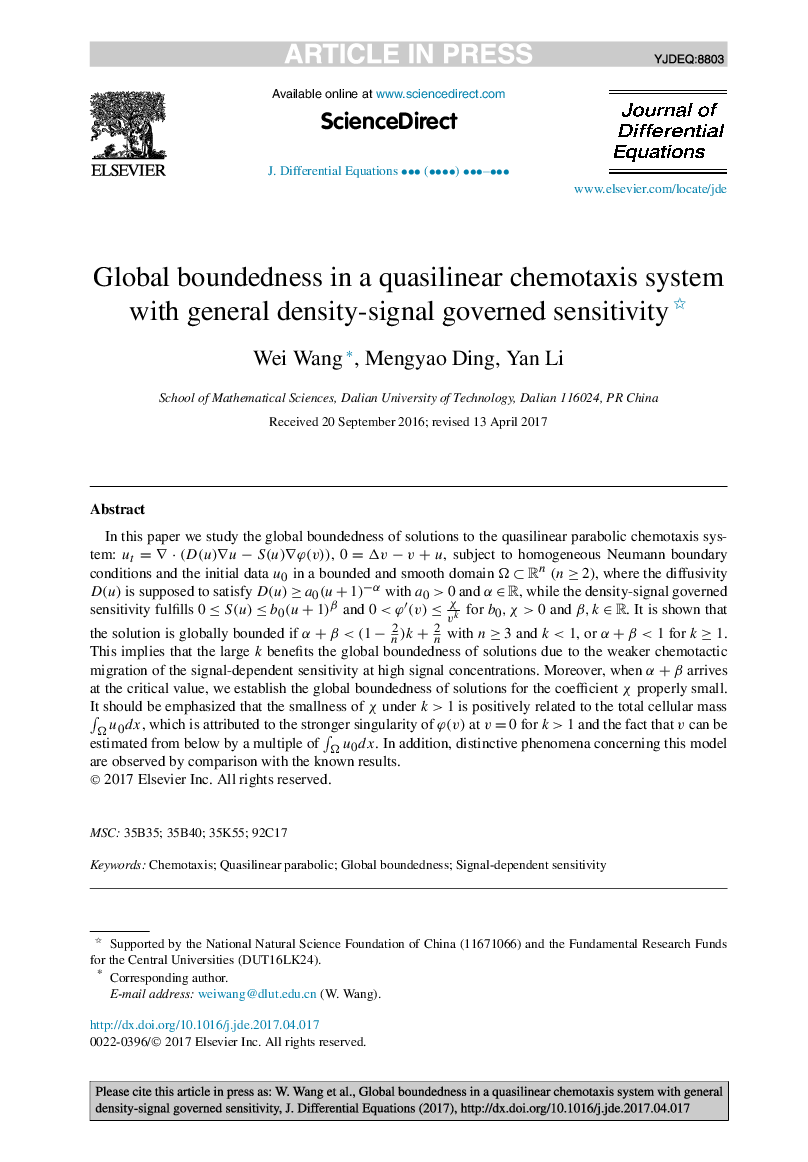| Article ID | Journal | Published Year | Pages | File Type |
|---|---|---|---|---|
| 5774026 | Journal of Differential Equations | 2017 | 23 Pages |
Abstract
In this paper we study the global boundedness of solutions to the quasilinear parabolic chemotaxis system: ut=ââ
(D(u)âuâS(u)âÏ(v)), 0=Îvâv+u, subject to homogeneous Neumann boundary conditions and the initial data u0 in a bounded and smooth domain ΩâRn (nâ¥2), where the diffusivity D(u) is supposed to satisfy D(u)â¥a0(u+1)âα with a0>0 and αâR, while the density-signal governed sensitivity fulfills 0â¤S(u)â¤b0(u+1)β and 0<Ïâ²(v)â¤Ïvk for b0,Ï>0 and β,kâR. It is shown that the solution is globally bounded if α+β<(1â2n)k+2n with nâ¥3 and k<1, or α+β<1 for kâ¥1. This implies that the large k benefits the global boundedness of solutions due to the weaker chemotactic migration of the signal-dependent sensitivity at high signal concentrations. Moreover, when α+β arrives at the critical value, we establish the global boundedness of solutions for the coefficient Ï properly small. It should be emphasized that the smallness of Ï under k>1 is positively related to the total cellular mass â«Î©u0dx, which is attributed to the stronger singularity of Ï(v) at v=0 for k>1 and the fact that v can be estimated from below by a multiple of â«Î©u0dx. In addition, distinctive phenomena concerning this model are observed by comparison with the known results.
Related Topics
Physical Sciences and Engineering
Mathematics
Analysis
Authors
Wei Wang, Mengyao Ding, Yan Li,
